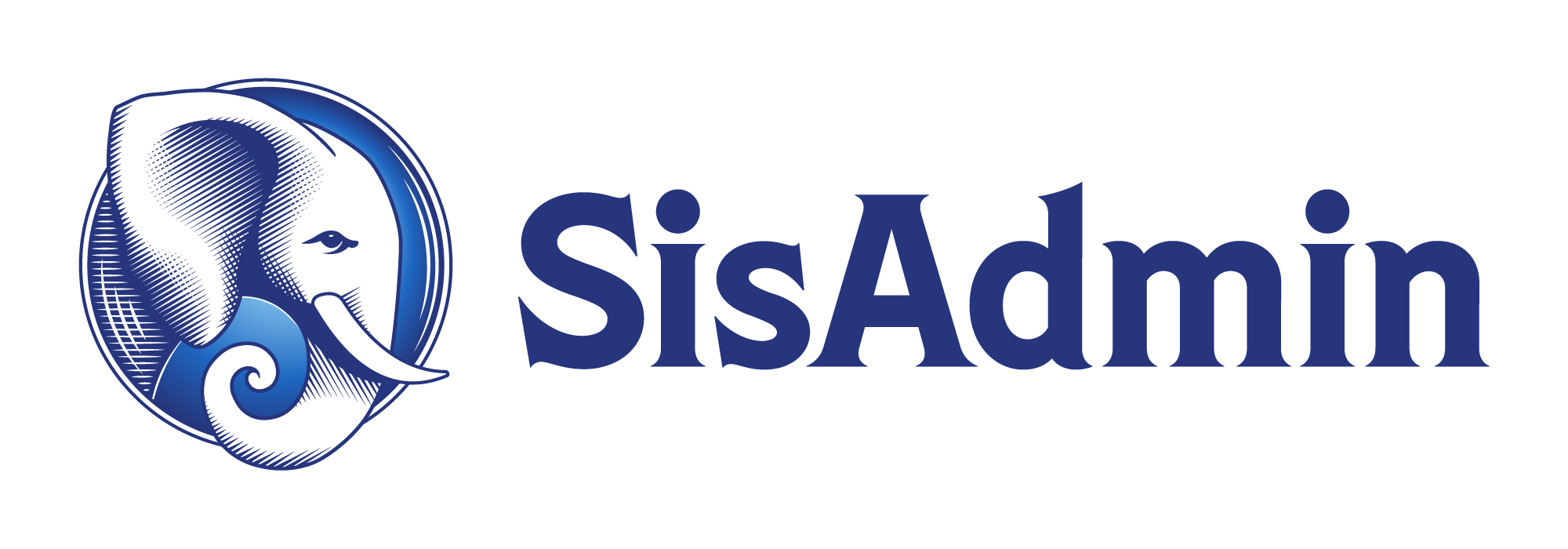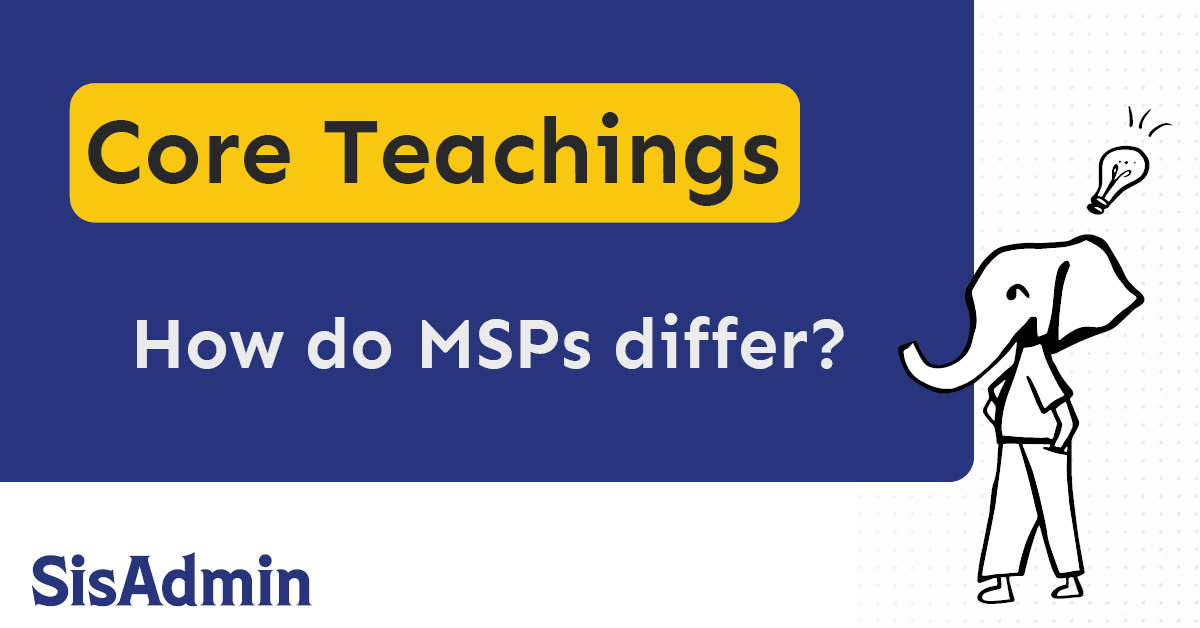How do MSPs Differ and Why Are The Differences Important?
MSPs come in many shapes and sizes. Here are some key differences you should consider:
What does their team look like and how is their organization structured?
One significant advantage of hiring an MSP is the ability to leverage the skills and expertise of their whole team. Ask for an organizational chart to familiarize yourself with the staffing structure of the MSP you are considering. A well-established MSP with competent, experienced technical staff will provide more expertise and value than a single person or small team could. Here are a few reasons why:
- A high-quality technical team requires numerous skill sets such as technicians, administrators, strategists, planners, analysts, implementors, and integrators. If one person or a small group is trying to fill all these roles, they are most likely to come up short in some areas.
- Technology changes rapidly—within a matter of months or years, entire skill sets can be eroded and even become obsolete. An IT service provider must constantly emphasize training and education amongst its employees to keep up with the latest industry trends, innovations, and methods. Managing this is a challenge that is often overlooked which results in poor technology decisions and implementations.
- Just as people are individuals, so are MSPs. People and scaled MSPs do not come bundled with the same, tools, technology, systems, processes, procedures, and expertise. Tools can provide efficiency and consistency beyond the financial reach of some organizations, and all tools are not created equal. It can be difficult for individual IT people or small groups to create and follow new systems, processes and procedures.
What is an MSP’s approach to end-user technical support?
There are several ways in which end-user technical support is provided to businesses. This is an important thing to consider when selecting an MSP. There are three typical models, each with pros and cons, that can also be combined to form hybrid approaches and even more options. You will need to decide which model is best for your business:
- Centralized Help Desk: With this model, you will contact a centralized help desk team via phone, email or a support portal. Sometimes, online chat is an option as well. Your request will be triaged and prioritized by an MSPs individual methods and business processes. An engineer will assist you to remedy your issue or fulfill your request. This model, with personnel dedicated only to this service, typically offers faster response times, personalized service, and more efficient resolution, but it’s usually more expensive.
- Dispatched Support: With the dispatch model, you will contact a non-technical dispatcher whenever you have a support request and they will collect information from you. They will assign your issue to an engineer, who will then provide you with a timeframe of when you can expect a response from the technical engineer. Dispatch support is typically more affordable, but response and resolution times are usually longer.
- Dedicated Engineer: Some MSPs will assign a single person to your account either to be your sole support technician or to handle everything for your account from support to proactive tasks, maintenance, and special projects. Oftentimes, this is analogous to having an internal IT person who works remotely. These engineers are typically assigned to multiple accounts; their time and attention to clients is split accordingly.
- Hybrid Approach: Some MSPs will mix and match these methods into packages or approaches to meet specific customer demands and desires. This can mitigate or magnify the pros and cons within each method, so you should carefully evaluate if they are able to fulfill your support expectations.
Do they offer after-hours support?
On-call or after-hours support offerings vary greatly between MSPs. Some include it within their packages while some charge a premium for support outside of normal business hours. You should carefully evaluate your needs based upon your typical working hours.
How do they bill?
There are several terms that are common within the MSP industry and other services industries. It is important to understand these billing arrangements when selecting an MSP.
Full Fixed Fee (also called All You Can Eat): This approach typically includes a fully comprehensive package of products and services for which you pay a fixed amount. The fee is often derived either from your number of staff/users (or quantity of supported computers), servers, or devices. There can be many benefits to this arrangement. It is important to note that there is incentive for the MSP to do a good job in this model since it is in their best interest to reduce your technical support requests and needs.
Time and Materials (T&M): In this billing model, you pay only for the services you consume, so you are billed on an hourly basis. MSPs bill using various time increments, but it’s typically per quarter hour. Although it can be beneficial to only pay for what you need and consume, there is little or no incentive for the MSP to be efficient or permanently fix issues since they only get paid per job.
Block Time/Hours: In this billing model, you pay for a block of time, which is often discounted based upon the number of hours you purchase. You consume the hours as you need them and buy another “block” when you run out. This method has the same cons as T&M, but it can be beneficial if you purchase hours at a promotional rate or buy them prior to a rate increase. In this case, the hours are already “in the bank” for you to use.
Hybrid Approaches: Billing models are often mixed and matched for different services within support packages. For example, regular business hours support may be included under a fully fixed fee, but after-hours support is billed using T&M rates. Some plans may take it a step further and include services for lower-level engineers under a fully fixed plan but charge additional fees for senior engineers or onsite technical resources. It can be challenging to compare plans and providers and to accurately predict what your bill will be from month to month. Be cautious of committing yourself to what appears to be a low-cost plan without understanding its inclusions and exclusions.
What do I get?
Packaging and pricing is an area that varies greatly between MSPs. Some MSPs will have one or two offerings; others may have anywhere from 3-10+ different packages and customizations. It’s impossible to provide examples of common offerings as there are so many variations. Packing is intrinsically linked to inclusions and exclusions. What your service package includes—along with limitations on products and services—directly impacts what will be on your monthly bill.
Since MSPs package and price their products and services in all manner of ways, our advice is to keep things simple and focus on the results you need for your business. Will the package of services achieve your desired results with predictable costs? Complex packages require constantly referring to your contract to understand what is and isn’t included. It’s also possible to have frequent billing disputes with your MSP. Your support agreement should be simple, easy to understand, and not filled with technical jargon, legalese or complex appendices listing inclusions and exclusions.
What do I pay extra for?
Paying for extra services may seem simple enough, but it can be very complex. Support packages and agreements are often written vaguely and/or with complex language, so it can be difficult to determine what is included and excluded. Read the contract carefully and ask for clarification or modification to the agreement if you don’t understand the terms.
What are the contract terms?
It’s important to understand what you are obligated to. There are significant differences in contractual and financial commitments between a month-to-month agreement and a long-term agreement. Short-term agreements put the obligation on the MSP to continue to earn your business. Long-term contracts can be mutually beneficial but are often structured in a way which financially penalizes you for terminating the contract prematurely.
Ask them for references!
References are an important source for verifying and validating what you’ve been told throughout the sales process. The MSP is obviously not going to provide you with a reference that is unhappy, but you can still learn a lot about a provider by speaking with a reference. You should ask solid, leading question such as:
- Have you had any major issues or outages? If so, how was the response and resolution you received?
- Have they performed any major projects or implementations with you, and how did that go?
- Do you have any difficulty understanding your contract, and have you had any billing issues?
- What is their overall service delivery approach, and how do they deliver their service to you and your team?
- How involved are you in your overall IT health and direction?
Questions such as “How happy are you with this provider?” usually aren’t very revealing. You must dig deeper into what is important to you and the outcomes you expect in order to understand whether or not you are likely to be satisfied with their service.
We hope this helps clarify some of the differences you should consider between MSPs when evaluating service providers.



